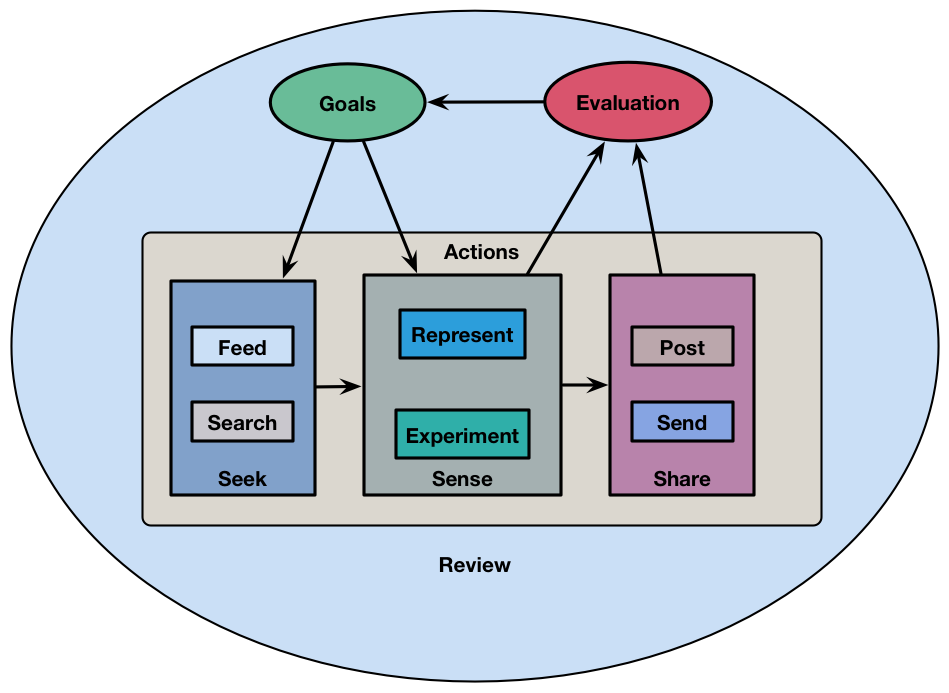I’m a fan of Harold Jarche’s Seek-Sense-Share (SSS) model for Personal Knowledge Mastery (PKM). I was also reading about self-regulated learning, and a proposed model for that. And I realized they could be related. Naturally, I created a diagram.
 To start with, Harold’s model is oriented around coping with the information flow as a component of learning. He starts with seek, which could be either from a pre-arranged feed or the result of a specific search. Then, the information is processed, by either or both of representation or active experimentation. Finally, information is shared, either broadcast through some form of post, or sent to a specific target. Note that the interpretations within the SSS boxes, e.g. feed and post, are mine, as I haven’t checked them with him.
To start with, Harold’s model is oriented around coping with the information flow as a component of learning. He starts with seek, which could be either from a pre-arranged feed or the result of a specific search. Then, the information is processed, by either or both of representation or active experimentation. Finally, information is shared, either broadcast through some form of post, or sent to a specific target. Note that the interpretations within the SSS boxes, e.g. feed and post, are mine, as I haven’t checked them with him.
Now, the model of self-regulated learning I was reading about talks about personal goals, learning actions, and evaluation. It seems to me that learning goals sit outside of SSS, the SSS serves as the actions, and then evaluation comes after the action. Specifically, the goals inform the choice of feeds and any search, as well as the context for interpretation. Similarly, the results of personal sensing and the feedback from sharing inform the evaluation. And of course, the evaluation feeds new goals.
Two additional things. First, the encompassing notion is that this is under continual review. That is you’re taking time to think about how you set goals, act (SSS), and evaluate. Also, let me note that I think this makes sense both at the individual and organizational level. That is, organizations need to be explicit about their knowledge, experiments, and learnings.
The outside loop is likely to be an implicit part of PKM as well, but as indicated I haven’t had a chance to discuss it with Harold. However, it’s useful for me to represent it this way as an experiment (see what I did there?). The question is, does this make sense for you?
Leave a Reply